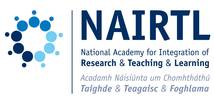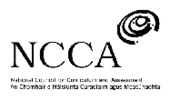The Centre for the Advancement of science and mathematics teaching and learning (CASTeL)
Twin centre
The Centre for the Advancement of science and mathematics teaching and learning (CASTeL)
St. Patrick's College
Drumcondra
Dublin 9
Ireland
Contact person
Dr. Cliona Murphy
Education Department
St. Patrick's College
Drumcondra
Dublin 9, Ireland
Phone: +353 1 8842153
E-mail: Please enable JavaScript to reveal the Email address
National website containing information about Fibonacci
CASTeL / FORFAS - short description
The Irish contingent of the Fibonacci project will be co-ordinated by the Centre of the Advancement of Science and Mathematics Teaching and Learning (CASTeL) in St. Patrick’s Teacher Education College (SPD) in partnership with Discover Science & Engineering / FORFAS (FORFAS) in the capital city of Dublin.
St.Patrick's College, Drumcondra, the largest primary teacher education institution in Dublin and one of the two largest in Ireland. Each year approximately 40% of Irish Primary teachers qualify through courses in the college, making St. Patrick's College a nationally significant institution in initial primary teacher education. You can visit the college website at www.spd.dcu.ie.
CASTeL – the Centre for the Advancement of Science Teaching & Learning – is a multidisciplinary research team involving scientists, mathematicians and educationalists from St Patrick's College, Drumcondra (SPD) and Dublin City University (DCU). The expertise of the members encompasses the science disciplines and mathematics, in addition to education. CASTeL’s research has the aim of improving the learning of science and mathematics at all levels of the educational system.
In addition to this research focus, CASTeL supports science and mathematics promotion activities in partnership with many local and national organisations, and specialised training and consultancy services for science and mathematics education are also available.For further information on CASTeL please visit our website at http://www.castel.ie/.
The Discover Primary Science programme of FORFAS is an Irish government initiative (Department of Enterprise Trade & Employment) established to support practising primary teachers in delivering the new science part of the primary curriculum implemented in Irish schools from 2003. Now in its fifth year, the Discover Primary Science programme has provided ‘hands-on’, investigative professional development to in excess of 3,400 Irish teachers in over 2,985 schools (there are approximately 3,300 primary schools in Ireland). You can visit the website at www.primaryscience.ie.
The partnership between SPD and FORFAS within this application brings together expertise in pedagogy and dissemination of IBSE from two significant organisations within an Irish context.
Activities within the Fibonacci project
- The CASTeL partners are developing and teaching a comprehensive in-service programme, based at St. Patrick’s College, Dublin. These teachers will already have participated in FÓRFAS initiatives. The in-service will provide the teachers with opportunities to develop their conceptual and pedagogical knowledge of the Nature of Science (NoS) through an innovative and contemporary three year long interactive science programme.
- The programme is aimed at providing the participants with opportunities to develop their conceptual and pedagogical knowledge regarding Nature of Science (NoS) including the history of ideas in science and the impact these ideas have had on, and continue to have on society today.
- The in-service programme will be delivered utilising a range of methodologies, including ICT, providing participants with opportunities to learn about what science is, how it works, how scientists work as a social group and how society influences and is influenced by science.
- It is envisaged that this intensive in-service programme will provide the teachers with knowledge and skills that will enable them to develop their own independent Nature of Science (NoS) / IBSE ideas and initiatives. This in turn would provide them with the confidence and expertise to support science teaching within a whole school context.
- During the project the participating teachers will be supported in their own classes and in becoming subject leaders in their schools. They will be provided with time and support to disseminate and share their newfound ideas amongst the whole staff. On a small scale, this model would mirror the overall pattern of dissemination proposed in the Fibonacci project as a whole.
Other related projects
Dr Clíona Murphy, scientific coordinator, supported by Dr Janet Varley, both members of CASTeL, are employed as science education lecturers in St. Patrick's College, Dublin. A central component of their work is the promotion of IBSE within an Irish primary context. Dr Murphy and Dr Varley have developed and published a range of materials to support the teaching, learning and assessment of IBSE at primary level within Ireland.
Recently, Dr Varley and Dr Murphy were involved in evaluating the implementation of the Primary Science Curriculum in Ireland, work commissioned by the National Council for Curriculum and Assessment (NCCA), the national organisation responsible for curriculum development and reform. They were also part of an all-Ireland research project that explored pre-service teachers' experiences of teaching and learning science, history and geography. They are currently working on a science research (BEST) project that is funded by the National Academy for the Advancement of Research and Teaching and Learning (NAIRTL) and St. Patrick's College, Dublin (SPD).
Building Expertise in Science Teaching (BEST ) Project( 2009 - 2010)

This research project is jointly funded by NAIRTL and SPD. The aim of the BEST project is to provide student and practising primary teachers with opportunities to develop their conceptual and pedagogical knowledge of the Nature of Science through an innovative and contemporary interactive science programme. During the programme student and practising teachers are also being provided with opportunities to teach collaboratively ('coteach'). While coteaching, it is envisaged that pedagogical ideas experienced throughout the course would be employed as well as new ideas that the student and practising teachers would have developed together during the programme.
The use of coteaching approaches will benefit both practising and student teachers who will be able to share their different experiences and knowledge. In this programme, student teachers can offer greater expertise in pedagogical approaches to teaching about NoS, whilst practising teachers will have more experience of classroom teaching.
NAIRTL website: http://www.nairtl.ie/
Review of the Irish Primary Science Curriculum (2008)

This research project was funded by the NCCA and carried out by Dr Varley, Dr Murphy and Ms Veale at SPD. Its aim was to evaluate the impact and level of implementation of the Primary Science Curriculum in Ireland, which had been formally introduced from 2003. This new curriculum provides for a balanced approach to learning scientific content whilst also placing particular emphasis on IBSE. The focus of this evaluation was the pupils themselves, and feedback was sought from pupils at all levels at primary school (age 5-12 years) and from first years at post-primary school. The latter group were chosen to represent their views on the impact of primary science experiences after transition to post-primary school science. Data were gathered using a national survey, classroom observations and group interviews of pupils.
Two detailed reports of the findings can be downloaded from:
www.ncca.ie/uploadedfiles/primary/Binder1.pdf and
www.ncca.ie/uploadedfiles/Primary/Science_Phase2_Final_report.pdf
The Primary Science Curriculum in Ireland can be downloaded from:

Dr Murphy and Dr Varley are also members of the Irish Association for Social Scientific and Environmental Education (IASSEE). They were both involved in a recent large-scale all-Ireland longitudinal research project that explored Irish pre-service primary teachers' experiences as learners and teachers of history, geography and science. This report was funded by the Standing Conference on Teacher Education North and South (ScoTeNS), St Patrick's College, Dublin, Queen's Unversity, Belfast, Mary Immaculate College, Limerick.
The full report, entitled Becoming A Teacher (Waldron et al., 2000) can be downloaded from: scotens.org



